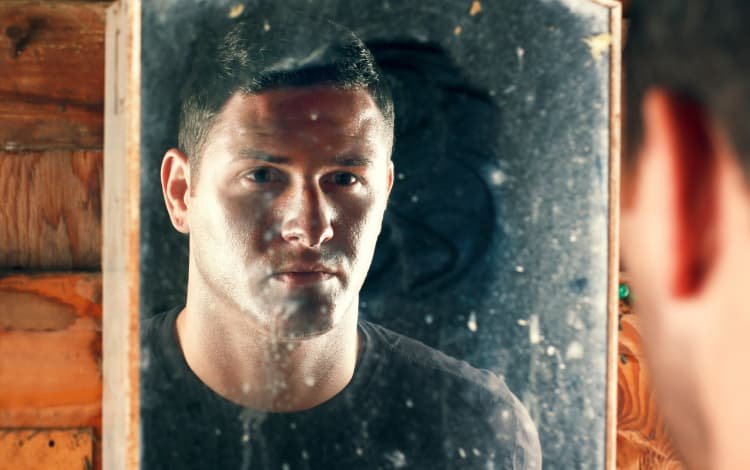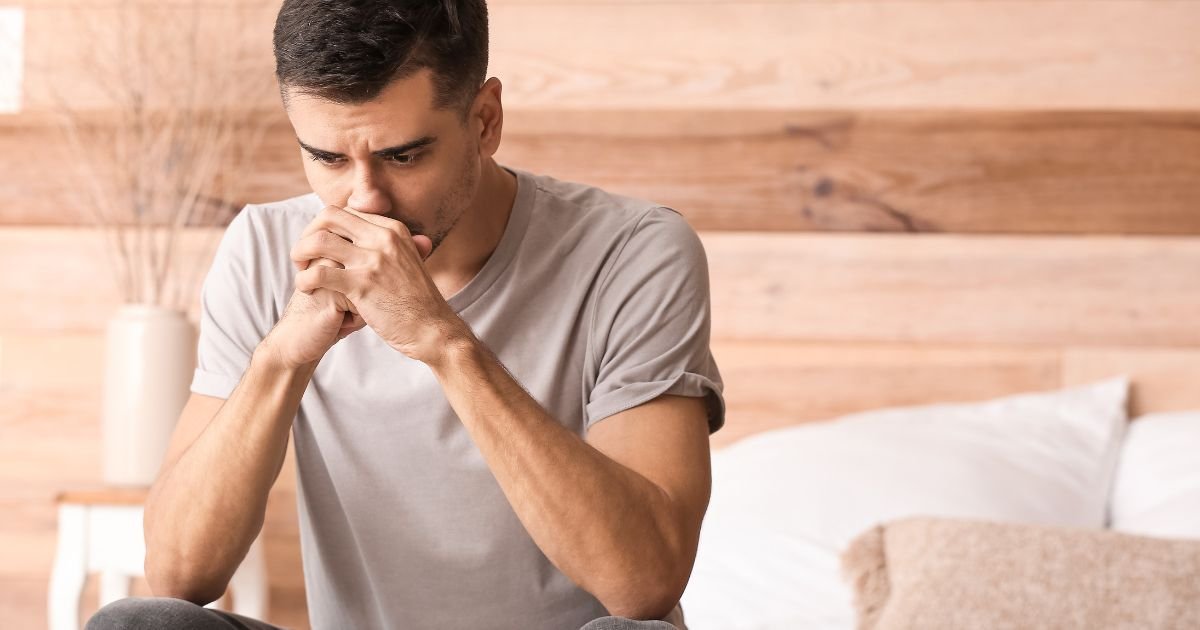Gay Open Relationships: Understanding and Navigating the Pros and Cons.
What does it take to build and sustain a healthy open gay relationship?
As a gay therapist with over a decade of experience in the field, this is becoming a frequently asked question.
Open relationships among gay couples - and couples in general - are becoming increasingly common, and navigating their nuances is no small task.
This article will provide insights from my work with couples through their challenges and triumphs of open relationships, debunking myths, addressing common concerns, and offering practical advice.
I hope this helps you build a healthy, fulfilling romantic partnership.
What Is аn Оpen Relationship?
The foundation of a romantic relationship lies in the decisions and agreements made by the individuals involved.
Some people want and commit to an emotional and sexual relationship with just one person, an arrangement commonly known as "monogamy."
Conversely, others may prefer the freedom to engage in romantic or sexual relationships with multiple partners.
This alternative is known as an open relationship or consensual non-monogamy.
An "open relationship" is a type of relationship in which both parties openly agree to pursue romantic, sexual, or emotionally intimate connections with other individuals.
These romantic partnerships can manifest in various forms, and no one-size-fits-all approach exists.
For example, some gay couples may choose to see others occasionally, while others might establish more flexible guidelines for multiple ongoing sexual relationships.
However, all healthy non-monogamous relationships share a common trait: complete honesty regarding non-monogamous activities and mutual agreement on the arrangement, including any rules safeguarding the primary partnership.
This distinction sets open relationships apart from those marred by infidelity or cheating.
What Percentage of Same-Sex Couples are in an Open Relationship?
Many people assume that most gay men prefer or engage in open relationships, but this is not necessarily true.
There isn't a single statistic that accurately reflects the percentage of gay men in a non-exclusive relationship. This figure can vary based on relationship dynamics and geographical location.
However, studies suggest that 30-50% of gay couples engage in some form of consensual non-monogamy.
Some earlier studies suggested higher rates.
A 2010 survey by San Francisco State University found that 50% of gay male couples were not monogamous.
A 2013 study by Hunter College found that 53% of partnered gay men were in an open relationship.
Why Do Some Gay Couples Prefer Open Partnerships?
There are various reasons why gay men might prefer polyamorous-like relationships.
Couples who have been together longer are more likely to open their relationship.
In the past, gay men's sexual relationships have not been restricted by traditional societal norms, allowing for a wider variety of relationship structures.
Open relationships can help couples manage mismatched libidos or sexual needs.
Some gay couples may choose open relationships to address specific circumstances, such as long-distance relationships or differing sexual interests.
Many couples I speak to appreciate the freedom and flexibility to explore additional romantic or sexual connections.
Additionally, some couples view non-monogamy or an ethical open marriage as a means to deepen their bond and strengthen trust between partners.
As Tristan Taormino suggests,
“Open relationships can give you the freedom to create unique relationships, explore yourself and your sexuality, and challenge society's expectations.”
Why the Stigma Around Gay Men and Polyamorous Relationships?
Open partnerships and open marriages are often stigmatized and negatively perceived by society.
For instance, some individuals view non-monogamy and open marriages as unethical, harmful to children, and of lesser quality than monogamous couples.
Many gay couples report experiencing stigmatizing remarks and rejection from family members and friends due to their preference for open relationships.
These opinions may discourage gay men in non-traditional relationships from disclosing their relationship status to family and friends, creating a sense of “returning to the closet.”
The concept of mononormativity (monogamy as the ideal) is familiar within the gay community. These perceptions provoke shame and guilt and can compromise both the same-sex couple as a unit and the mental health of each partner.
The Benefits of Gay Open Relationships.
Although consensual non-monogamy comes with its unique challenges, consensual non-monogamy can be healthy if it fulfills the needs of both partners.
Sexual Satisfaction and Diversity of Non-Exclusive Relationships
Gay open relationships can offer increased sexual satisfaction and diversity, allowing partners to explore their desires without feeling constrained by monogamous expectations.
Additionally, non-monogamy can accommodate differing preferences. For instance, one partner is into kink, while the other prefers vanilla sex. Opening the relationship may enhance the "erotic charge" in the primary relationship.
Improved Communication and Relationship Fulfillment
Several studies suggest that men in non-exclusive relationships are often more satisfied with their primary partnerships than those in monogamous relationships.
Moreover, gay men who enter an open relationship report higher communication and trust between partners.
Increased communication and trust in nontraditional relationships stem from partners being more likely to discuss their feelings, desires, and boundaries with each other.
Furthermore, a non-monogamous agreement can help reduce jealousy by clearly understanding acceptable behavior within the partnership.
Some Disadvantages of an Open Relationship
However, there can be disadvantages accompanying the advantages.
Some red flags that may indicate a non-exclusive relationship might not be healthy for your partnership include:
Desiring sexual exclusivity from you or your partner.
Considering an open relationship to fix existing relationship problems or intimacy issues.
An open relationship exacerbates jealousy and insecurity when it becomes difficult for you or your partner to separate love and sex.
Mental Health Considerations in Gay Open Relationships
While open relationships can offer many benefits, they can also bring unique mental health challenges.
It’s essential to be aware of and address these issues to maintain a healthy and fulfilling open relationship:
Stress and anxiety: The complexities of managing multiple relationships or coping with a partner's additional connections can be stressful and anxiety-inducing. Developing healthy coping mechanisms, such as exercise, meditation, or seeking professional help, is crucial to managing stress effectively.
Self-esteem: Engaging in open relationships can sometimes lead to feelings of inadequacy or self-doubt. Make sure you and your partner support each other emotionally and maintain open communication to address any self-esteem issues that may arise.
Emotional intimacy: Maintaining emotional intimacy with your primary partner can be challenging when exploring relationships with others. Prioritize spending quality time with your primary partner and continuously work on building and strengthening your emotional connection.
Mental health support: If you or your partner struggle with the emotional aspects of an open relationship, seeking professional help from a therapist or counselor experienced in gay relationships can be beneficial.
How Do You Open Your Gay Relationship?
I firmly believe we should ground strong gay relationships in the Three Cs: commitment, compromise, and communication.
To borrow from one of these Cs, a fulfilling relationship depends on good and honest communication.
Therefore, gay couples should discuss the "terms” that govern their choices, such as their open relationship's rules, conditions, and boundaries.
In couples therapy sessions, discussions of consensual non-monogamy always include this focus.
How will you prioritize practicing safe sex?
How will you handle the disclosure of your sexual activities?
How will you restrict (or not restrict) who you can have sex with?
What kinds of sexual activities are permissible?
Where can you have sexual relations? (An example: your house, a hotel, or somewhere else?)
Can you have consistent sexual partners?
Can you have sex with someone more than once?
Can you have sex with friends or people with whom you socialize?
Can you have non-sexual interactions with your sex partners?
Do you have complete transparency and tell each other everything, or do you follow the "Don't Ask, Don't Tell" rule?
Challenges in Maintaining Open Gay Relationships.
While successful open relationships are plentiful, they may not suit all couples.
Various factors contribute to this.
Jealousy is one of the main reasons open relationships don’t work. Coping with the knowledge that your primary partner has sexual relationships with other men can be challenging, particularly if you have low self-esteem. This discomfort may lead to insecurity, betrayal, and resentment.
Another factor hindering the success of open gay relationships is the challenge of communication and managing expectations. Expressing your feelings, needs, or boundaries can be difficult for you and your partner, potentially leading to misunderstandings and hurt feelings.
Establishing and adhering to rules and boundaries also presents challenges. Your partner may inadvertently disregard your feelings or cross boundaries, resulting in an environment of distrust that can deteriorate your relationship.
An often overlooked factor is the influence of societal norms on your relationship. Unfortunately, the LGBTQ+ community may face judgment or criticism for being in an open relationship, even though such arrangements exist within heteronormative relationships. This external pressure can create friction and strain your relationship with your partner.
Lastly, differing expectations about the relationship can lead to tension and conflict. For instance, if one partner desires a casual, non-exclusive relationship while the other seeks monogamy. This disparity makes cultivating a healthy, long-term romantic partnership difficult.
While open relationships do work for many gay couples, they demand high trust, communication, and understanding to succeed. For it to work, you and your partner must establish clear expectations and boundaries and be prepared to address potential issues.
The Importance of Communication in Open Gay Relationships
When you and your partner want to maintain closeness while also engaging with other sexual partners, it's crucial to engage in open and honest conversations.
I'm not only referring to discussions about the logistics of when, where, and with whom. I'm emphasizing the importance of talking about your emotions – a process we refer to as "processing" in therapy.
Many gay men do not grow up in a culture or environment that encourages them to share personal and vulnerable feelings. Examples include being brought up by an emotionally absent father or in a homophobic environment.
Feeling uncomfortable during these conversations is understandable. However, avoiding emotionally honest discussions may indicate that your relationship isn't as close as it could be, putting your partnership at risk.
Of course, this principle applies to any relationship, whether you want an open or closed arrangement.
Establishing Gay Open Relationship Rules.
Non-monogamous relationships require high trust, communication, and understanding to succeed.
That’s why rules for an open relationship should be discussed freely and honestly between partners.
Setting behavioral expectations and emotional boundaries will help you and your significant other be comfortable with the arrangement and any potential challenges that may arise.
For instance, it’s vital to explore how to address difficult emotions if they arise.
One of the objectives of couples therapy is learning to have intentional, honest communication. This includes common rules and boundaries that work for most couples.
Your open relationship is more likely to succeed if you clearly define your boundaries and avoid putting your relationship on "auto-pilot."
Dealing with Jealousy in Gay Open Relationships
Jealousy is a powerful and sometimes painful emotion that everyone in a relationship experiences at some point. It often stems from personal insecurities and a lack of trust in your partner.
Unchecked jealousy can harm any relationship, potentially driving an irreversible wedge between partners.
To prevent jealousy from becoming a significant issue, consider these suggestions to set yourselves up for success:
Establish clear boundaries by defining what is and is not acceptable. Boundaries protect and support couples, as well as individual partners.
Discuss potential issues early in the relationship before they arise.
Be attentive to each other's feelings and prioritize your partner over other sexual relationships, including regular check-ins with your partner.
Listen empathetically to your partner's concerns and address their worries.
If specific actions trigger jealousy in your partner, consider whether you could refrain from doing them.
Reaffirm your appreciation for your partner and commitment to the relationship.
Communicate the most crucial aspects of your relationship. For example, merely saying, "I want you to stop being jealous!" is insufficient.
Be prepared to regularly review your "open relationship rules" and evaluate their effectiveness.
Discussing insecurities and addressing concerns in your relationship or a toxic situation is essential. Engage in open conversations with your partner.
Consider seeking guidance from a gay couples therapist if necessary.
Always remember that both partners must contribute to the success of a partnership.
Pros and Cons of an Open Relationship
Open relationships have pros and cons. Therefore, it's essential to consider these factors before deciding on one to ensure it aligns with your and your partner's needs and desires.
Some pros of consensual non-monogamy include the following:
Increased freedom and autonomy for both partners in a gay open relationship.
Opportunity to explore multiple romantic and sexual connections.
Greater potential for intimacy and emotional growth in open gay relationships.
Reduced stress and boredom in a single-partner relationship.
Deepened trust and communication within a non-exclusive relationship.
However, there are cons to consider, which can sometimes explain why open relationships don't work:
Increased risk of jealousy and insecurity.
Potential for misunderstandings or unclear boundaries.
One partner may develop stronger feelings for someone outside the primary relationship.
Elevated risk of sexually transmitted infections (STIs) if safe sex practices are not followed.
Potential for negative societal judgment or discrimination.
Recognizing that consensual non-monogamy may not be suitable for everyone is essential.
Therefore, clear communication and boundaries remain crucial for the success of any relationship.
What to Look for in a Couple's Therapist for Gay Open Relationships
Numerous studies suggest that some people in open relationships feel that their therapist doesn't understand their needs or the complexities of open relationships.
In some cases, clients have even reported that their therapist pressured them to end their open arrangement, particularly among LGBTQ couples.
“This behavior from a therapist is borderline unethical and often associated with negative therapeutic techniques.”
Additionally, some therapists may unconsciously or consciously project their perceptions and feelings about relationships onto their clients, a phenomenon psychoanalysts call "countertransference."
Finding a gay therapist experienced in working with LGBTQ+ couples and rooted in unconditional positive regard for their clients can significantly help you navigate this territory.
Look for a couple's therapist who demonstrates the following:
Experience with and understanding of gay open relationships.
A non-judgmental approach to various relationship styles.
Awareness of and ability to manage countertransference.
Familiarity with the unique challenges faced by LGBTQ+ couples.
Committed to helping clients navigate their options and make healthy decisions.
Working with a knowledgeable and empathetic therapist can make all the difference when addressing the complexities of open relationships.
How to Navigate a Gay Open Relationship
If you're considering opening up your relationship, keeping a few key points in mind is essential.
Honesty is crucial: Be open and honest with your partner about your desires, needs, and expectations.
Discuss and agree: Discuss what you both want from the relationship and ensure you are on the same page.
Manage jealousy: Accept that jealousy may arise, but work on managing it and not letting it control your primary relationship.
Remember that open relationships are not exclusive to the LGBTQ+ community, and the considerations in consensual non-monogamous partnerships are similar to those in a heterosexual open relationship:
Give your partner plenty of attention and positive regard.
Prioritize physical intimacy within your primary relationship.
Share your vulnerable feelings and emotions.
Listen empathetically when your partner shares their feelings.
Navigating gay open relationships can be a rewarding experience when approached with clear communication, trust, and well-defined gay open relationship rules.
You can create a strong, lasting relationship by considering your partner, your needs and desires, and addressing possible challenges.
Unlock the Success of Your Open Relationship: Embark on a Journey of Open Communication, Trust, and Mutual Respect
Navigating the complexities of an open relationship can be challenging, but it doesn't have to be. With the guidance of a compassionate and experienced counselor, you can transform your open relationship into a source of joy, fulfillment, and deep connection.






